
All for the Best, Part 2
Life's difficulties are steppingstones that lead us to the destination that Hashem has predetermined for the ultimate benefit of each of us...

An unhappy Jew?!
The same non-observant young man attended another one of the author’s lectures, and this time brought his brother, an observant Jew that learns Torah all day long. While former was pleasantly optimistic, the latter was depressed, complaining about a long list of worries and tribulations. “Nothing goes right in my life,” he mumbled. “Were it not for my brother, who lately has been a source of strength and encouragement for me, I don’t know what would become of me!”
The melancholy brother complained about the “illogical” and “unfair” way that Hashem runs the world. “I observe all the commandments and learn Torah all day long. Why is my life so bitter? Yet, my brother observes almost nothing, and everything seems to be going his way. What’s going on here?”
The author cited a passage from the Talmud (tractate Shabbat 55a) that sin causes tribulations, suggesting that the brother do some soul-searching and teshuva.
“What do I need to do teshuva for?” argued the brother. “I observe the Sabbath, eat kosher food, give charity, send my children to religious schools, and live a life of poverty and deprivation. What’s wrong with me? I understand that even the biggest tzaddik can commit a small sin from time to time; but, tell me – how on earth do I deserve such unbearable troubles?”
The author replied, “You obviously think that as long as you don’t break any laws, you don’t deserve any troubles in life. But, you’re missing the main point: Torah and mitzvot should be bringing you to emuna. You should be thanking Hashem for what you have – such as your wife and your children – and accept the rest of Hashem’s divine providence happily and with love. Failing to do so invokes severe judgments that manifest themselves in all sorts of suffering and tribulations. Hashem has no joy from the Torah and mitzvot of a person with a sour attitude.”
“Look at your brother,” the author continued. “Despite his non-observant lifestyle, he’s all smiles and you’re not; he thanks Hashem for what he has, and you don’t. He’s become a winner, while your life is unbearable. Emuna alone is enough to sweeten a person’s life. And guess what;” concluded the author, “your brother – with all his shortcomings – brings a lot more joy to Hashem than you do with all your Torah. Emuna tips the scales in his favor!”
“How can that be?” protested the observant brother. “My brother breaks nearly every law in the Torah!”
The author removed a book from his briefcase, The Ramban’s classic commentary on the Torah, and opened it to Parshat Bo. He read out loud, “The intent of all the mitzvot are that we believe in Hashem and thank Him for being our Creator; this is the purpose of all creation. The sole request of the upper worlds from the nether worlds is that man should thank and get to know his Lord that created him.”
Rav BenTzion Halevi Bamberger, author of “Ginzei Shaarei Tzion”, elaborates on the Ramban’s principle, namely, that knowing The Creator, accepting His dominion with emuna, and thanking Hashem as a result of getting to know Him is the very purpose of creation, and without this, all of creation is superfluous.”
A New Light
The observant brother was stunned. He realized that he was further away from truth than his non-observant brother, whom he previously held in disdain. He suddenly realized that Torah learning and mitzvah observance alone are sorely incomplete without emuna.
The author continued, “Now you understand how your brother – who you always thought was so far away from Hashem – is actually closer to Hashem than you are, even though you’re the one who’s observant! He believes that everything’s for the best, and welcomes whatever Hashem does. He thanks Hashem for what he has, and consequently fulfills one of the main purposes of creation, that of recognizing the Creator! You might be an Orthodox Jew, but you don’t live your emuna like your brother does. Anytime things don’t go your way, you complain and become depressed. Even though you’re accustomed to saying ‘thank God’ and the like, you’re never happy with your lot in life. As a result, you are the one that’s missing the point of creation – that of recognizing and thanking the Creator – and that’s why you have dinim, severe judgments hanging over your head all the time.”
As if some bright light suddenly illuminated the darkness, the observant brother began to see a new world revealed before his eyes. He asked, “Rav Arush, please help me understand: What about desecrating the Sabbath, failing to pray or put on tefillin, and all the other mitzvot that are the foundation of emuna? I understand that my brother’s thanks to Hashem are important, but what about the rest of the mitzvot? How can anybody ignore the fact that he goes against Hashem’s will almost all day long?”
“Hashem is patient,” replied the author. “Since your brother has awakened to the inner dimension of emuna – that of thanking Hashem and accepting with love all that Hashem does – he’ll undoubtedly reach the outer dimension of emuna, that of fulfilling the mitzvot. Hashem doesn’t expect a person to become a Moshe (Moses) in one day; He has patience, and it’s worth His while to wait for your brother’s return to observant Judaism. You’ll soon see how your brother’s emuna will lead to his joyous observance of Torah. Since his first steps toward Hashem are based on emuna and gratitude – and not on fear of punishment or other self-serving motives – his subsequent steps toward Hashem will lead to his loving fulfillment of the mitzvot and to his full and complete teshuva.”
“But you,” added the author, talking straight to the observant brother’s heart, “as an observant Jew, could have easily attained a high level of emuna, since the mitzvot illuminate one’s soul with the light of emuna. An observant person’s lack of emuna shows that his or her fulfillment of the mitzvot is mechanical, for observance with the proper intent connects a person with emuna. It’s like a person with a company car that fails to use the car for its designated purpose, and therefore doesn’t arrive at his specified destination. On the other hand, your brother is like a person that has reached the specified destination without the benefit of a company car. Just as the boss would certainly chastise the first person, you’ve been having a rough time in life, to awaken you from your mistaken concepts. If you add emuna to your Torah learning and observance, and thank Hashem for everything, you’ll see how your life turns from bitter to sweet, almost immediately!”
The above account of the two brothers should help us readjust priorities and understand that emuna is the objective of our tour of duty on this earth. We also learn that we can’t judge a fellow human on the basis of superficial trappings.
Some people make the tragic mistake of believing that with emuna, they don’t need to observe the mitzvot. Emuna can’t possibly be complete without the fulfillment of the mitzvot. On the other hand, one should observe the mitzvot and learn Torah with the intent of reinforcing emuna; as such, he or she is using the “company car” for the right purpose.
Maintaining a Clear and Optimistic Outlook
To attain the level of emuna that everything is for the best, a person must learn that his or her path in life has been predetermined by Hashem.
A person comes to this world to perform a mission and to achieve a tikkun. The fact that every occurrence of our lives is the result of divine providence – Hashem’s personal intervention and guidance – we can always be happy with our lot, whether things go smoothly or otherwise.
When life is rosy, we certainly have a tremendous reason to rejoice in Hashem’s divine providence and to thank Him, because He is the source of all of our blessings. But, when life looks bleak and everything seems to go wrong, we need to remember that our difficulties are the product of the Creator’s same loving divine providence. Life’s difficulties are steppingstones that lead us to the destination that Hashem has predetermined for the ultimate benefit of each of us.
At various milestones in life, we face trials and tribulations. Sometimes, our tailor-made path in life puts us in protracted contact with certain people that cause us pain and suffering, such as a nasty employer, teacher, neighbor, commander, or in-law. Oftentimes, there’s no possibility to circumvent the undesirable. Against our own will and for no apparent reason, we are periodically faced with grueling physical, emotional, interpersonal and financial challenges.
Life’s trials and difficulties frequently catch us unprepared and off-guard, often delaying or totally altering our personal plans. Since people are incognizant of their individual tikkun, life’s difficulties are liable to confuse and disorient them, imparting the false impression that their lives are ruined. Yet, whenever we rely on the emuna that all the events of our lives are not random, but the result of Hashem’s divine providence and personal supervision of our lives, we maintain a clear and optimistic outlook no matter how hard we’re being tested. With emuna, we’re never confused or disoriented. We realize that Hashem is doing everything for our benefit, to enable and facilitate our developing a closer and more meaningful relationship with Him.
To be continued…




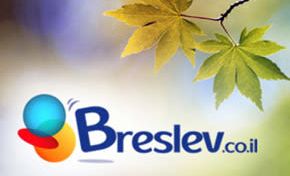

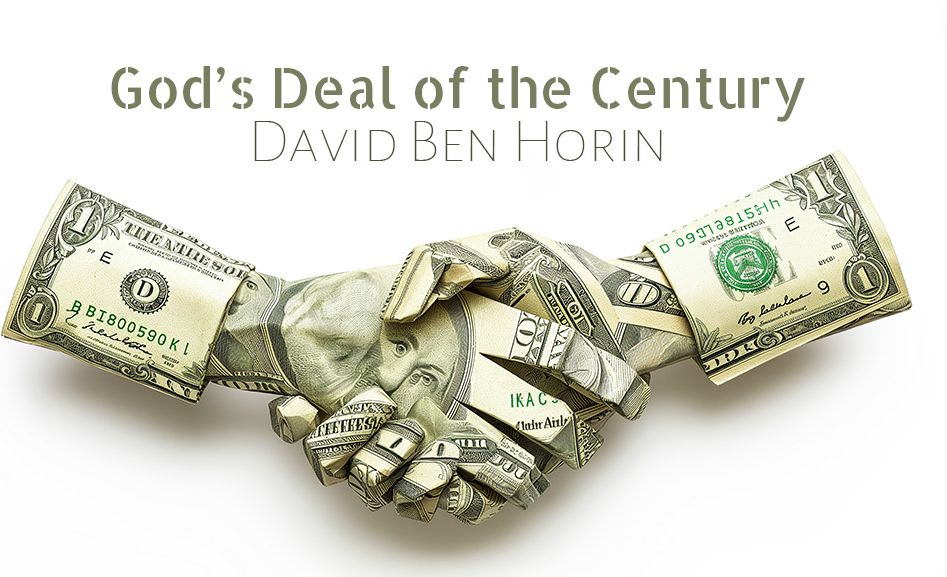
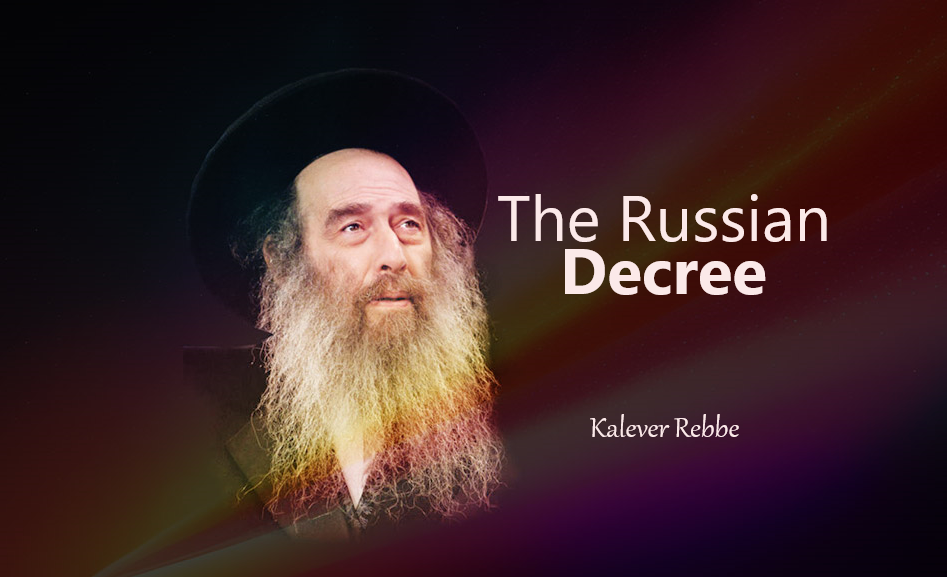
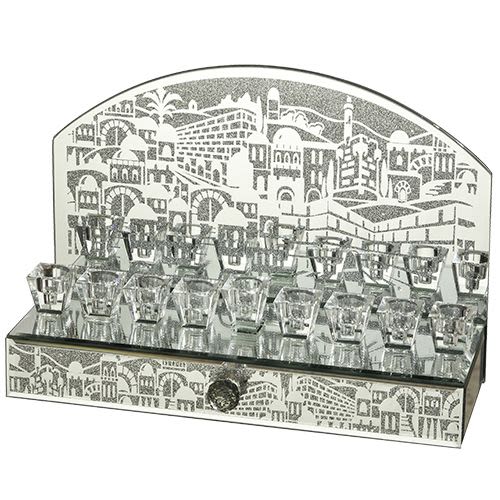
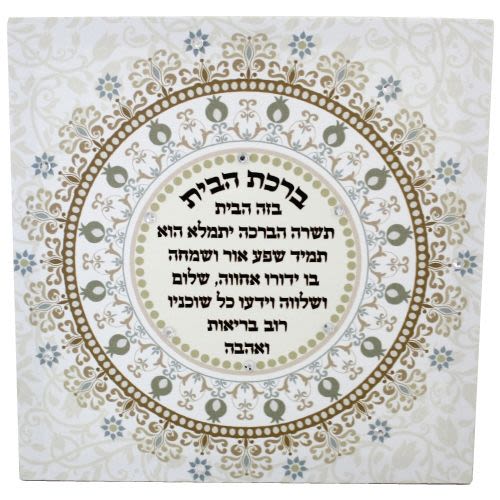
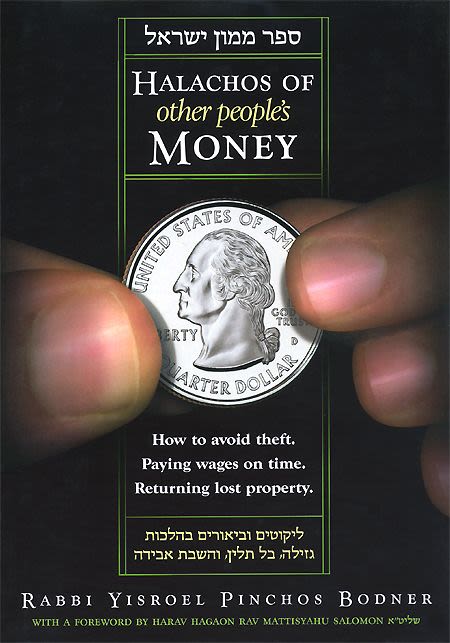
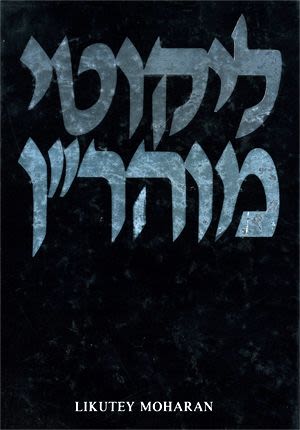


Tell us what you think!
Thank you for your comment!
It will be published after approval by the Editor.